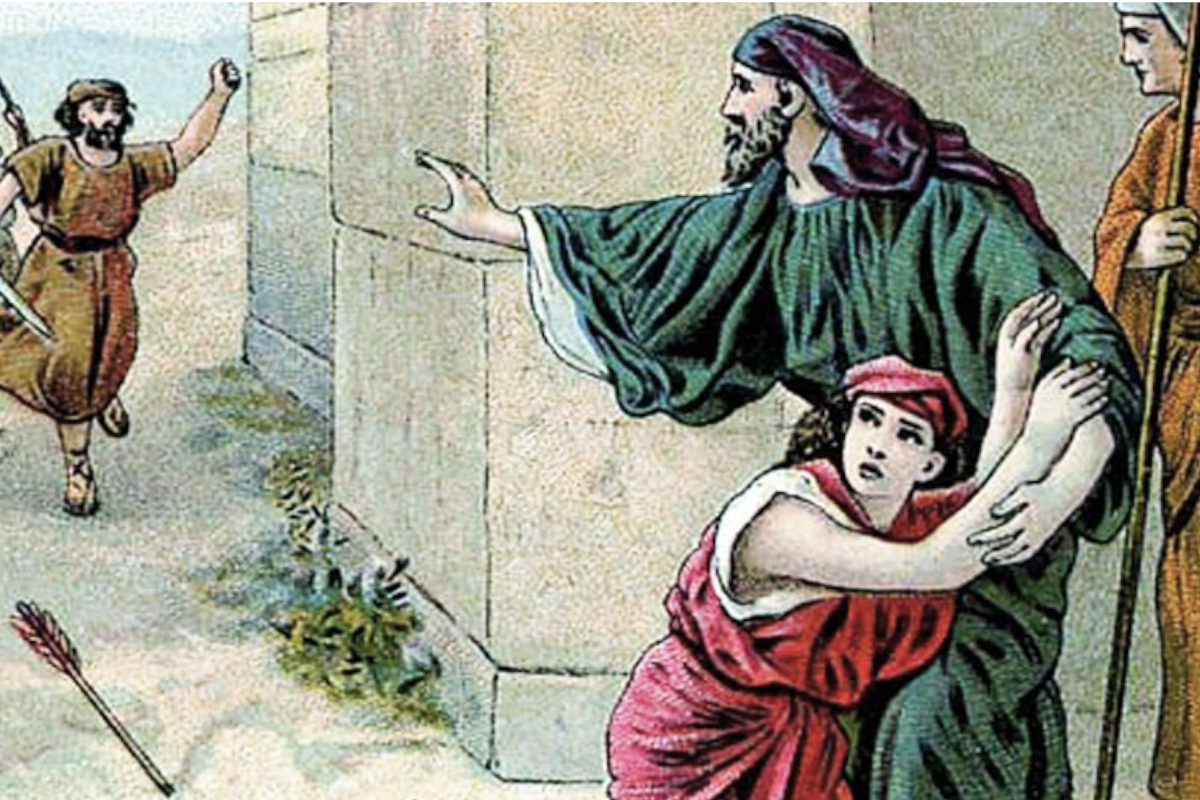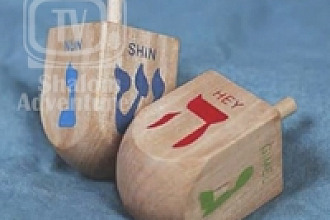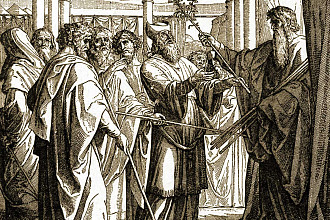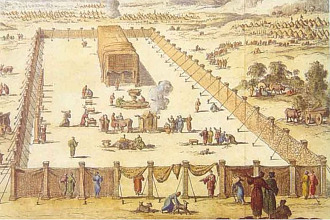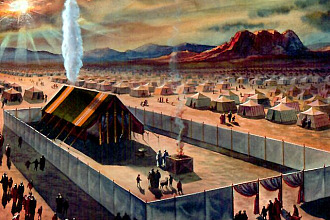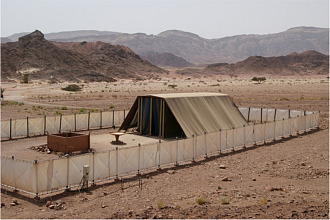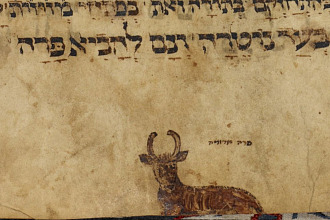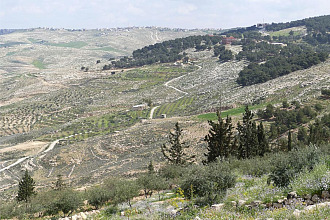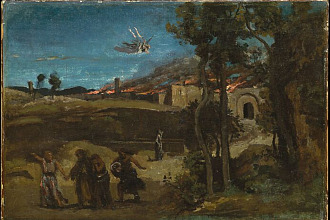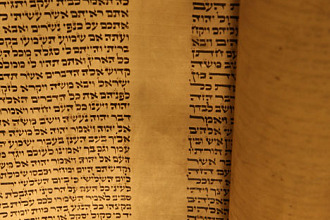Parasha for the Week: Shoftim Deuteronomy 16:18 – 21:9.
Haftara for the Week: Isaiah 51:12 – 52:12.
Besorat Yeshua: Mark 7:9 – 23.
Overview
Moshe tells Bnei Yisrael to appoint judges and officers. Bribes are forbidden.
Trees are not to be planted near Hashem’s altar, as was the way of idolaters.
Blemishes in animals designated for offerings and other points of disqualification are listed.
A Jewish king may only have possessions and symbols of power commensurate with the honor of his office, but not for self-aggrandizement. He is to write for himself two sifrei Torah, one to be kept with him wherever he goes, so that he doesn’t become haughty.
Neither the kohanim (priests) nor the levi’im (levites) are to inherit land in Eretz Israel, rather they are to be supported by the community by a system of tithes.
All divination is prohibited.
Hashem promises the Jewish People that He will send them a special prophet like him (many understand that this prophet is the Mashiach) to guide them, and Moshe explains how a genuine prophet may be distinguished from a false one.
Cities of refuge are to be provided an accidental killer to escape the blood-avenger from the deceased’s family. Someone who kills with malice is to be handed over to the blood-avenger.
Moshe cautions Bnei Yisrael not to move boundary markers to increase their property.
Two witnesses who conspire to “frame” a third party are to be punished with the very same punishment that they conspired to bring upon the innocent party.
A kohen is to be anointed specifically for when Israel goes to war, to instill trust in Hashem. Among those disqualified from going to war is anyone who has built a new house but not lived in it yet, or anyone who is fearful or fainthearted.
An enemy must be given the chance to make peace, if they refuse, all the males are to be killed.
Fruit trees are to be preserved and not cut down during the siege.
If a corpse is found between cities, the elders of the nearest city must take a heifer, slaughter it, and wash their hands over it, saying that they are not guilty of the death.
"Appointing Judges"
This week’s Parasha, Shoftim, begins with the mitzvah of appointing judges and officers to ensure a just and rightful judicial system. The Parasha begins, “You shall appoint judges and officials throughout your tribes, in all your towns that the LORD your God is giving you, and they shall render just decisions for the people. . . Justice, and only justice, you shall pursue” (Deut 16:18, 20). Our rabbis explain that the Torah commands to appoint judges “in all your gates” in order to ensure that the judicial system remains uncluttered, thus enabling the judges to pass just and correct judgment. As our sages in the Mishna tell us, “judges must take their time and not pass judgment hastily.” “Judges and officers you shall appoint for you,” according to our sages, also has another message. It implies that before a person judges others, they must judge themselves first. This applies to an individual judging others or a judge passing judgment upon others. They must remember to judge themselves by the same standard they would use while judging another person. Then, and only then, can they “judge the people with righteous judgment.” This is also in accordance with the following directives of our Talmudic sages, “First a person should correct his own faults before correcting others.” For only then will they be able to properly influence the behavior of others. Similarly, “Do not judge others until you have put yourself in their place.”
"Bribing"
This week’s Parasha Shoftim continues saying: “You must not distort justice; you must not show partiality; and you must not accept bribes, for a bribe blinds the eyes of the wise and subverts the cause of those who are in the right. Justice, and only justice, you shall pursue, so that you may live and occupy the land that the LORD your God is giving you” (Deut 16:19-20).
“Be Connected”
G-d prohibits the Jewish people from cutting down fruit-bearing trees when besieging a city in time of war. The Torah declares the following reason for this prohibition, “for man is like the tree of the field” (Deut. 20:19). There are important comparisons between mankind and the tree. Rabbi Zalmen Marozov says that in order to become a healthy fruit-bearing tree, one must carefully attend to the tree when it is still very young. The most crucial time is when the tree is young and susceptible to all kinds of dangers. The same is with people. To assure that our children grow up spiritually and morally strong, we must take extra care to give them the proper education and spiritual nourishment when they are still young. Just like a small mark on a young tree will turn into a larger scar as the tree grows, so too, even what may seem a minor negative impression on a young child can have long lasting negative effect. One’s commitment to the Lord must start at a young age. Another lesson is the importance of being constantly “connected,” which is most visible in a tree. A tree must always be connected to its roots and through them to its source of nourishment. As soon as it is cut away from its source, it dies.
“Responsibilities Towards Each Other”
At the end of this week’s Parasha, Shoftim, the Torah teaches us about the responsibility we have for each other. The Torah states, “If, in the land that the LORD your God is giving you to possess, a body is found lying in open country, and it is not known who struck the person down, then your elders and your judges shall come out to measure the distances to the towns that are near the body” (Deut 21:1-2). “All the elders of that town nearest the body shall wash their hands over the heifer whose neck was broken in the wadi, and they shall declare: “Our hands did not shed this blood, nor were we witnesses to it” (Deut 21-6-7). They would then ask for G-d’s forgiveness for the people of Israel. Our sages ask, “Would anyone think that the elders of the city have committed this crime? Why do they have to say ‘Our hands have not shed this blood and ask for forgiveness?’” This, explain the sages, is an instruction for each and every believer. It teaches us that every believer is responsible for the acts of every other believer.
HAFTARA Isaiah 51:12 – 52:12
This Shabbat is the fourth Shabbat after Tisha B’Av. We are in a period called Shiva D’nechemta—”Seven weeks of comfort.” The seven Haftarot of the weeks between Tish’a B’av and Rosh Hashana are prophesies of comfort and hope for Israel and God’s people at large. Haftara: G-d himself continues to comfort Israel. “I, I am he who comforts you” (Is. 51:12). Isaiah shows us that the L-rd is aware of the situation of his people “You have forgotten the LORD, your Maker” (13). However the L-rd continues to love his people and reminds them of what he has done for them in the past “For I am the LORD your God, who stirs up the sea so that its waves roar— the LORD of hosts is his name. I have put my words in your mouth, and hidden you in the shadow of my hand, stretching out the heavens and laying the foundations of the earth, and saying to Zion, “You are my people”” (15-16). G-d calls Israel to rise, to come back to him and to fulfill her mission “Rouse yourself, rouse yourself! Stand up, O Jerusalem” (17). God gives another wonderful promise to Israel saying, he is the intercessor, he will plead her cause. “Thus says your Sovereign, the LORD, your God who pleads the cause of his people: See, I have taken from your hand the cup of staggering; you shall drink no more from the bowl of my wrath” (22). If God is the intercessor, who will be against G-d’s people? Shaul says, “Who will separate us from the love of Messiah? Will hardship, or distress, or persecution, or famine, or nakedness, or peril, or sword? As it is written, “For your sake we are being killed all day long; we are accounted as sheep to be slaughtered.” No, in all these things we are more than conquerors through him who loved us (Rom. 8:35-37). Jerusalem is still a holy city and will no longer be threatened by the nations. “Put on your beautiful garments, O Jerusalem, the holy city; for the uncircumcised and the unclean shall enter you no more. “ (Is. 52:1). Jerusalem will be joyous for G-d’s protection. “Break forth together into singing, you ruins of Jerusalem; for the LORD has comforted his people, he has redeemed Jerusalem” (9). G-d reaffirms his protection for his people, “for the LORD will go before you, and the God of Israel will be your rear guard” (12).
Besorat Yeshua Mark 7:9 - 23
In our Parasha we have a long list of rules and laws that Moshe gives as a reminder to Israel at the border of the Promised Land.
Besorah: In our text of the Besorah, Yeshua shows his people how easy it is to deviate from G-d’s law even though we think that we are in a good condition. “You have a fine way of setting aside the commands of God in order to observe your own traditions” (Mark 7:9). They don’t reject the law of G-d, but in their way of achieving perfection, they add many traditions to the law of God, and the danger is that these traditions, after a few generations, are not seen only as traditions but as laws and they finish by replacing the commandments of G-d.
Yeshua gives an example of this trap. “For Moses said, ‘Honor your father and your mother,’ and, ‘Anyone who curses his father or mother must be put to death.’ But you say that if a man says to his father or mother: ‘Whatever help you might otherwise have received from me is Corban’ (that is, a gift devoted to God), then you no longer let him do anything for his father or mother” (Mark 7:10-12). We notice here in this example that the motivation is a religious one. Religious leaders never deliberately say, “Let’s change the law of God.” Most of the time they have good intentions, but the result is not good because they come to impose they own rules and traditions above G-d’s law. Yeshua states what is most important in our lives, because religion is not only spirituality but much more our everyday actions. “For from within, out of men’s hearts, come evil thoughts, sexual immorality, theft, murder, adultery, greed, malice, deceit, lewdness, envy, slander, arrogance and folly. All these evils come from inside and make a man ‘unclean” (Mark 7:21- 23). How many people give the appearance of spirituality and religiosity, but in fact in their hearts they are worse than murderers.

